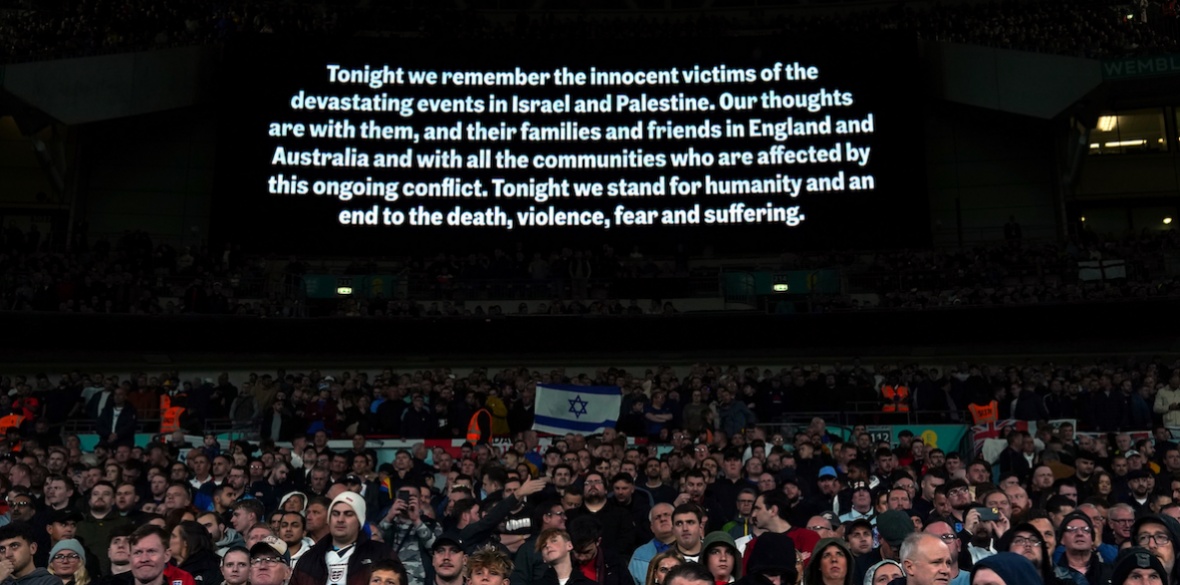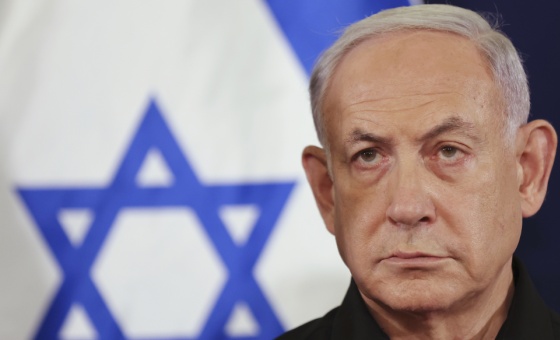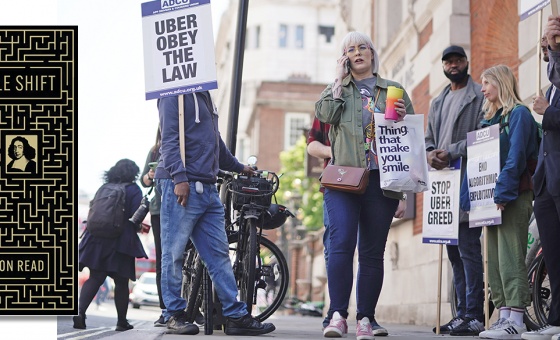This is the last article you can read this month
You can read more article this month
You can read more articles this month
Sorry your limit is up for this month
Reset on:
Please help support the Morning Star by subscribing here
IN SELLING itself to the highest bidders, which now happen to be sovereign states, rich monarchies and the tools of exploitative global capitalism, top-level football has entered the world of politics by default.
From the economic politics of capitalism to the geopolitics of state ownership and the increased intertwining of the two, football is part of these systems because it is now owned, directed and influenced by them.
Combine this with its own inherent political geography and power dynamics, created by various divisions, tournaments and confederations within a global structure, plus its links to society, communities, businesses and its own economy and workforce, and football is now almost a branch of political science itself.
In recent years, the sport has increasingly sold its way into the realms of other branches of politics, such as economics and international relations.
Along with this comes the inevitable task of making political decisions, gestures and statements.
It is here that top-level football can find itself out of its depth and out of tune, under pressure from the world powers it sold itself to and their Establishment media.
This has become increasingly apparent in the years since football became a tool for imperialists — for states and absolute monarchies and for groups whose names often include “private equity” and “investment”—a guise for the useless, unproductive and exploitative practice of making money from money.
When it became more complicated than simply taking the side of your team against the other team, football struggled to know what to do.
It began to hold pre-match rituals related to the global events it was now involved in, having to take sides in political debates and current affairs or respond to recent events quickly and in a manner deemed appropriate.
This was easier at first despite the occasional backlash, but it became increasingly difficult to find the “appropriate” action.
As the sport was sold around the world to different groups with different backgrounds and ideologies, there would inevitably be clashes.
This has culminated, for now — as it feels like so much of the world’s politics has — around the continuation of the situation in Israel and Palestine.
With the entire world now focused on this one region and on this one issue, football was expected to act, but in what manner?
As the English FA and Premier League found out, there is no simple pre-kick-off gesture that safely and uncontroversially deals with such an issue.
In the end, the furore focused on the possibility of lighting up the Wembley arch in the colours of the Israel flag ahead of the game between England and Australia on October 13, six days after the Hamas terrorist attacks in Israel.
The relatively trivial lighting of an arch on a stadium became a big issue in the media.
Maybe it was because talking about this felt safer and more comfortable than writing about what is actually going on and the whys and wherefores.
The FA, to its credit, did well to ignore those insisting that the arch be lit up in the colours of the Israel flag while Palestinian civilians were being killed by the Israeli government and its army.
It was an abhorrent, sickening terrorist attack by Hamas in Israel, in which hostages were taken. It wasn’t an unprovoked one. It was one that Israel has responded to with the same barbarity and then some.
This kind of attack on the Gaza Strip by Israel is not unfamiliar to Palestinians trapped there.
They have been subjected to such violence, danger and death at the hands of Israel for as long as people can remember.
This is why the arch could not be lit up in the colours of the Israeli flag, despite the terrorist attacks in Israel days earlier.
In the end, the FA did the right thing in those circumstances at that time, but FA chairman Mark Bullingham still described it as “one of the hardest decisions we’ve had to make.”
Meanwhile, journalists and media outlets, including football writers, demanding that the arch be lit up and then decrying the FA for not doing so when it wasn’t, is one of the many Western responses the crisis that beggar belief.
Working journalists were among those killed by Israel in the days leading up to that game at Wembley.
In the isolation of the profession, showing support for an oppressor who has killed colleagues among the thousands of trapped civilians is hardly a show of solidarity.
Amid the grim reality of life on the ground in the region, there will be little care for the lighting of an arch on a football stadium, though other shows of support will be seen and welcomed by many whose family and friends are in the worst situations.
Those in Israel who were attacked on October 7 while going about their daily lives, and their friends and families around the world, not just in Israel, need more than empty symbolism anyway.
They need real support in communities where the actions of the Israeli government and its army, supported and armed by the West, have led to waves of anti-semitism affecting Jewish communities.
Just as there was an increase in Russophobia on the back of Russia’s invasion of Ukraine, there have been similar attacks on Jewish civilians around the world on the back of Israel’s devastating bombardment of Gaza.
It is in those communities that support is needed, alongside the continued fight against anti-semitism.
A flag can be one way of showing support, but given that Britain provides arms to the Israeli government and has supported the atrocities it inflicts on Palestine for so long, displaying Israel’s colours on the national stadium could have been viewed as a show of aggression against Palestinians suffering ongoing oppression and attacks.
Those on the ground in Palestine who have faced barrage after barrage from across the border for generations need support from the international community.
But for a few weeks, we had the almost unbelievable scenario where Western leaders and their media, rather than just condemning the terrorist attack by Hamas, were actively backing Israel’s brutal response.
More than that, they continue to support it with arms.
There is a need for humanitarian aid in Gaza, but the only path for Palestinians to flee Gaza to Egypt, or for aid to enter the enclave from Egypt, has been bombed.
Western governments are now tentatively calling for humanitarian aid to Gaza but at the same time increasing the need for it by backing Israel.
Israel’s government tells Palestinians to flee Gaza, but all paths for them to do so are blocked by its forces.
If we can call the Hamas attack on Israel an act of terror, then we can call the response of the Israeli government and its army genocide. If it is a war, Israel is committing war crimes.
It is a response that, after removing all the dressing and rhetoric, aims to flatten the Gaza Strip and anyone remaining in it.
Given there is no way out for the people there, anyone in it means everyone in it.
The unbelievably grim scenarios listed above only scrape the surface of what is going on now, let alone the history behind it.
Now that the international break is over, club football returns to the geopolitical stage, having had plenty of time to consider its response.
How individual clubs react will be monitored. How fans react will be monitored and probably decried or even censored.
The Premier League, an organisation whose decisions are primarily based on a voting consensus among its 20 clubs, released a statement during the break that rightly called for peace and showed sympathy for civilian casualties on both sides. Other clubs added their own sentiments on top of this.
Mohamed Salah, one of the most influential footballers in the world, called for peace and humanitarian aid to Gaza.
“I'm calling on the world leaders to come together to prevent the further slaughter of innocent souls,” Salah said at the end of his statement. “Humanity must prevail.”
Meanwhile, US President Joe Biden, one of the most influential politicians in the world, reduced the issue to a game of football and taking sides.
When speaking to Israeli Prime Minister Benjamin Netanyahu on Wednesday, Biden said: “I was deeply saddened and outraged by the explosion at the hospital in Gaza yesterday.
“Based on what I've seen, it was done by the other team, but there's a lot of people out there who are not sure.”
When a historically oppressive state suffers a terrorist attack and in turn ramps up the oppression and conducts its own attacks, the response isn't as simple as picking a team.
That Salah got closer than the US president to picking the right one — innocent civilians and the oppressed — is troubling.
That Jewish communities around the world suffer attacks on the back of the actions of the Israeli government is frightening and shows that current resolutions are not working.
That support for Palestinians is labelled by the overwhelmingly right-wing and neoliberal Western media as anti-semitism is dangerous and obstructive to any peace process.
Such labelling may even be anti-semitic in itself and adds to any trouble that might be faced by Jewish communities.
Can football respond to all of this in the appropriate manner? Early signs from the FA and Premier League have been surprisingly promising, but they are under constant pressure to fall in line with the oppressor and the Western governments that support it.
Should football have to respond to all of this? After selling itself into this sphere of geopolitics and the politics of global capitalism, it has given itself no choice.












